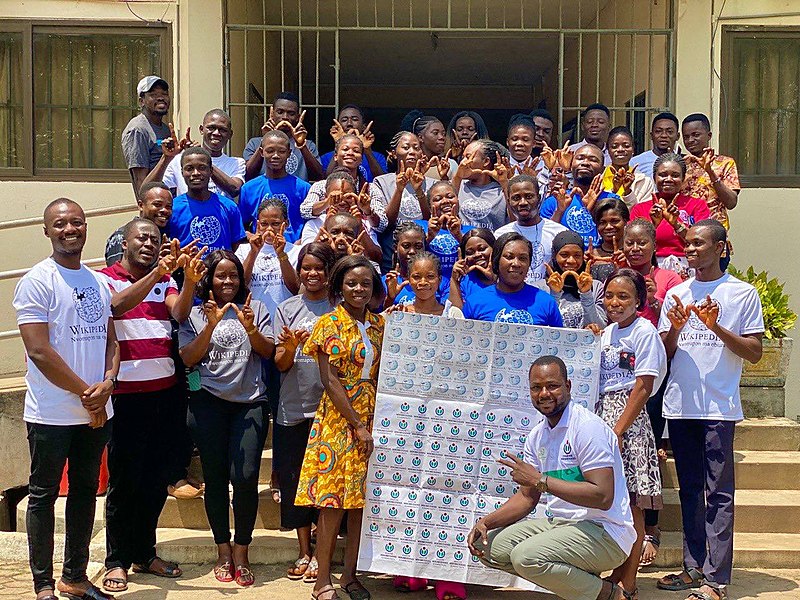
The Akan Wikipedia was closed to editing in April 2023.
While the closure of a wiki may signal the end of its cause, for Akan Wikipedia, it is an opportunity for clarity and growth for Akan languages in Wikimedia, and here is why.
The wiki was created in the mid-2000s without the realization that Akan is a language family. Akan represents an ethnicity, a group of people, and a group of languages or dialects namely Twi, Fante, Nzema, Akuapem and Bono. Akan is a group, not a language, so to speak.
Akan Wikipedia co-existed with Twi Wikipedia. Twi as mentioned before is a dialect in the Akan group. This has led to years of confusion and questions about which domain to contribute to.
Apart from confusing editors and readers, the problem also blocked contributors from proposing the creation of wikipedias for other widely spoken Akan dialects like Fante, Nzema, Akuapem and Bono.
ak.wikipedia.org contained several articles written in various Akan dialects, a melting pot of some sort but belonging to none.
Free knowledge continued to see a missed opportunity for sharing and expanding knowledge in these Ghanaian dialects.
Following the locking of ak.wikipedia.org, volunteers will move articles belonging to Twi Wikipedia, and then Fante articles to the Wikimedia Incubator, where the latter has been approved to become an established Wikipedia.
As for the Nzema, Akuapem and Bono dialects, with the way paved, native speakers capable of writing can now propose their dialect wikis with clarity.
So it is a goodbye to Akan Wikipedia, but a hello to Akan Wikipedias.
There are two proposed user groups (Wikimedians of Twi Language User Group and Fante Wikimedians Community), Wikimedia Ghana User group and other individuals in Ghana that contribute to developing Akan languages in Wikimedia.
Wikimedia Ghana User Group is looking to give a community grant to the yet-to-be affiliates and individuals who would like to mark the closure of ak.wikipedia.org with events, assist with moving articles and improve Twi and Fante Wikipedias, as well as brainstorm about the future of the other dialects of Akan in Wikimedia.

Can you help us translate this article?
In order for this article to reach as many people as possible we would like your help. Can you translate this article to get the message out?
Start translation